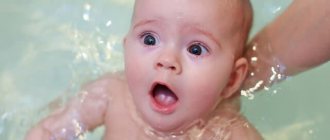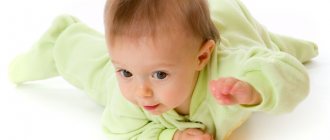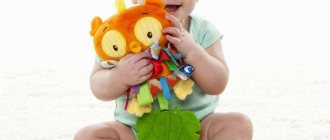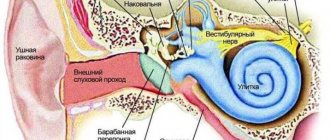What is the daily water intake?
First, let's figure out how much water a child needs per day, depending on his age.
From birth to six months
If the baby is breastfed, he does not need additional water consumption. “Artificials” of the same age need to be supplemented with alcohol. Since infant formulas, although most adapted to breast milk, have greater density. Therefore, a baby who is bottle-fed may want to drink due to a lack of fluid in the body.
Offer water to the baby; if he refuses, there is no need to insist. It is likely that he is getting enough fluid from the formula. The exception is situations when the child has a fever, vomiting, or diarrhea. You may also need additional fluid if the room is hot and dry.
The need for supplementation occurs during teething. Often at this time the body loses fluid. Children under 6 months can be given an additional 50 to 100 ml of water per day. It is better to give preference to special children's bottled water.
From 6 months to a year
In the second half of a child's life, solid foods are included in the diet. During this period, children must be given extra water. And it doesn’t matter what type of feeding they are on, breast or artificial. The optimal volume of fluid at this age is from 120 to 200 ml. per day. This also includes juices and compotes. In hot months, the daily volume of water consumption for a child closer to one year of age can be increased to 500 ml. If your baby is thirsty, there is no need to offer him sweet drinks. They do not quench thirst, but only intensify it.
Up to 3 years
For children from one to 3 years old, the daily volume of water increases. The rate of fluid intake in children of this age increases to 800 ml. This also includes soup, tea, compotes, and juices. Net water consumption – 500 ml.
Up to 7 years
These are already adult children who eat from the common table. Therefore, the daily volume of water increases to 2800 ml. This comes with soups and drinks. Net water intake can range from 700 to 1100 ml per day.
How to teach a baby?
It is impossible to force a baby to do anything. There are many ways to teach your child to drink from:
- spoons,
- bottles,
- sippy cup,
- mugs.
It is recommended to use all methods in a playful manner. It is forbidden to coerce or force.
Daily ways
When a baby is healthy, he or she may not drink the entire recommended amount of water. It should enter the body gradually, without coercion.
There are several simple ways that will allow your child to gradually get used to its taste:
- A game. For example, they start training with a teaspoon. A few milliliters of water are poured into it. The baby is told that this is a train or an airplane that should fly into his mouth.
- Personal example. When adults eat or drink, the child wants to do the same. Therefore, he independently reaches for the mug, repeating after his parents.
- Submission form. If the baby does not want to drink water from a bottle, offer a teaspoon or an ordinary mug. The water is not poured in full, but in doses.
- Measuring syringe. This is a device used to give medicinal syrups to babies. For example, a syringe from Nurofen. A small volume of water is filled into it and injected into the cheek. It is not recommended to use a large amount to prevent the baby from choking.
- Soldering before meals. On an empty stomach, children are more likely to drink water.
One of these methods should help the child. If he still does not want to drink water, there is no need to rush. Every baby gradually gets used to it.
In case of illness
When a baby's body temperature rises, moisture evaporates from the surface of his skin and mucous membranes. Frequent breathing and shortness of breath appear, this leads to an acceleration of the release of water through the lungs. Mild, moderate, and severe dehydration gradually occurs.
Depending on the condition, different measures are taken:
- Slight dehydration. The child continues to be fed through a spoon, sippy cup, or bottle. An increase in temperature causes thirst, at which point he begins to drink water.
- Moderate dehydration. The temperature is brought down so as not to provoke convulsions and other complications. At this stage, the child should feel better; water is offered every 10-15 minutes. If the baby does not want to drink, you can pour a small amount of water into the inside of the cheeks using a measuring syringe.
- Severe dehydration. If you do not drink water and rehydration products (powder with minerals, trace elements), consult a doctor. Intravenous infusion of saline solution with glucose is recommended to prevent the death of the baby.
Attention! Without soldering during illness, complications may arise. These include cramps, numbness of the limbs
During seizures, brain cells are damaged, which leads to nervous system disorders.
Reasons for increased water consumption
The reasons that influence the increased consumption of water by children can be divided into several groups.
Physiological
Children in the first year of life consume an increased amount of fluid due to the following factors:
- Weather
. Drinking more water in hot weather is considered absolutely normal for children of any age. But this behavior is especially typical for babies in the first year of life. In hot weather, increased water loss occurs in the body. Fluid leaves the body through sweat. For the same reason, children's thirst increases after taking a bath as the body warms up in the water.
- Hot room.
This problem is especially acute in winter. Since the air is dried due to the operation of heating devices. A child's thirst may increase in a dusty room. Children of the first year of life are sensitive to this factor.
If children between one and two years old are given sweetened water, their water needs will increase. Since sweet water quenches thirst worse than regular water. In addition, if children are accustomed to sweetened water, they will refuse plain water. It will seem too “fresh” to them.
If children at 3 years old begin to drink water heavily, first of all you should pay attention to their diet. Perhaps there has been a change in the nature of their diet. Often new products provoke a higher need for water.
The thirst of children 4-6 years old is influenced by the following physiological reasons:
- Inclusion in the diet of fried,
spicy, smoked, salty, sweet dishes.
- Least favorite food.
It so happens that if a child eats food he doesn’t like, then he doesn’t produce enough saliva. Therefore, while eating, he may well need water to chew and swallow food.
- Excessive physical activity
, during which a large amount of fluid leaves the body. The more active children are, the more they want to drink.
Psychological
In addition to physiological reasons, a child may want to drink due to psychological factors. For children in the first years of life, the following psychological causes of increased thirst are most typical:
- Formed habit.
If a child is given water in a bottle, he becomes “attached” to it. In the future, he drinks water from a bottle not so much to quench his thirst as to calm down. This is a kind of “addiction” that can be dealt with by offering him water from a new bright sippy cup or an unusual mug.
- Attention deficit
. If the mother pays little attention to the child during the day, then he, by asking her for a drink, receives his portion of care. This situation is common during the weaning period. The child's psychological need for the mother's attention increases.
The following psychological reasons influence the increased thirst of older children:
- Stressful situations,
which can be caused by tense relationships in the family, kindergarten. Usually at this time children go to kindergarten or nursery. They experience stress about this and feel a lack of maternal attention.
- Reluctance to go to bed
. Often children try to delay an unwanted moment under various pretexts. Therefore, in the evenings their desire to drink increases sharply.
Diseases
If parents have ruled out the effects of the above-mentioned causes that have a direct impact on water consumption, then you should visit a doctor to rule out the following diseases:
- Diabetes insipidus.
This is a rare disease during which the child feels constantly thirsty and produces large amounts of urine. Even if you reduce your fluid intake, he will still urinate in large quantities.
- Diabetes.
The disease is also manifested by high fluid intake and increased urination. But, in addition, there is general lethargy, decreased muscle tone, and a sharply increased appetite. The child experiences increased sweating, itching, and changes in body weight.
- Kidney diseases
. Increased thirst and urination are accompanied by pain in the lumbar region, increased body temperature, and swelling.
- Liver diseases.
This pathology is characterized by a bitter taste in the mouth. Children want to remove it and therefore drink water.
- Worm infestation
. Increased thirst is accompanied by pain in the lower abdomen, nausea, and itching in the anus.
The listed reasons can occur in children at any age. But, if a baby in the first year of life has increased thirst, then most likely it occurs against the background of a transition from breast milk to formula or complementary foods.
How to teach your baby to drink more liquid?
A few tips to help teach a reluctant woman to drink more clean water:
Parents must ensure constant access to water. For example, keep a full carafe of water at home and teach your child to pour water from it independently. When going to the store, clinic or for a walk, the mother needs to take a bottle of water with her and regularly offer the child to drink. Especially in hot weather or during outdoor games. Buy your baby his own beautiful mug or sippy cup with his favorite animal, cartoon character or other bright pattern. Set an example for your son or daughter by drinking clean water yourself more often. Make strong arguments in favor of clean water. If the child is old enough, then show him an interesting and educational video about this, and patiently answer all the “whys”. Invisibly dilute concentrated juices, fruit drinks or compotes with clean water. Introduce a special ritual that will be associated with drinking. Encourage your child to drink water through play. For example, who will empty a cup of liquid faster?
It is only important to watch carefully so that the baby does not choke. Agree with your child that he should drink a carafe or bottle of water throughout the day. You should not try to change the taste of water with sugar or honey, but you can add a couple of slices of cucumber or lemon to the water (if the child is not prone to allergies). Offer the baby something to drink during an interesting and exciting game. Most likely, he will not want to be distracted for a long time and will take a few sips without any problems. The baby, starting from infancy, needs to be given clean water in sufficient quantities.
If necessary, use a trick, but do not encourage drinking sugary carbonated drinks. There is no benefit from them.
The baby, starting from infancy, needs to be given enough clean water to drink. If necessary, use a trick, but do not encourage drinking sugary carbonated drinks. There is no benefit from them.
Child drinks water at night
If your child asks to drink at night, first of all, analyze what food was included in his diet during the evening feeding. Avoid salty, spicy, fried foods in the evening. Perhaps the reason lies in habit or attention deficit. A child waking up at night wants to remind himself in this way. The desire to drink at night can be affected by excessive activity during the day or dry and hot air in the room.
Pediatricians do not recommend frequently feeding your child at night. This habit can harm a child's body. At night, all systems are in a relaxed state. Excess water causes great harm to the urinary system. The kidneys and bladder will have to work more actively.
Reasons why teenagers drink alcohol
There are several reasons why teenagers prefer to drink alcoholic beverages. Let's look at them.
Lack of attention
The main reason why children start drinking alcohol at an early age is lack of attention.
Parents do not communicate with teenagers as much as they should. They don't spend much time with them. They are not interested in their lives.
And, as a result, teenagers begin to experience a lack of attention. To attract the attention of their parents, they start drinking alcohol. Coming home drunk. Party until late. And sometimes you don’t even have to spend the night at home
To once again make parents nervous and attract attention
Alcohol helps your child relieve stress
If there is a lot of stress and negative emotions in a child’s life, then he begins to actively drink alcohol. With his help, he tries to forget about his problems. “Relax your brain.”
If this is the reason for drinking alcohol, then we recommend that you help your child get rid of the problems he has. And also teach a teenager to relax without additional stimulants. For example, working out at a fitness club. Walking outdoors with friends. Or, as a last resort, playing computer games.
With the help of alcohol, a child becomes more sociable
During adolescence, not all teenagers know how to communicate with the opposite sex.
They think that alcohol liberates them. And it helps you communicate with people more easily.
Therefore, many teenagers drink alcoholic beverages. And only after that they go to meet girls and communicate with peers.
Your task is to explain to the child that he is behaving uninhibitedly not because of alcohol intoxication. But because he himself is a cheerful and interesting person. These qualities lie somewhere deep in his soul. A teenager just needs to learn how to “get” them out.
Add that a child can be the life of a campaign even if he is sober.
The child drinks alcohol because it is customary in his environment to do so.
Most teenagers start drinking alcohol because it is accepted in their campaign.
If in a teenager’s social circle those who drink and smoke cigarettes are considered “cool”, then the child will adhere to this mindset. Will drink and use tobacco products in order to “fit in” with his campaign.
Such imitation can lead to alcoholism. As a result, the child will drink alcohol every day. And in the future he may even switch to alcohol.
A teenager may drink alcohol because of some serious problem
If some serious problem has happened in a teenager’s life, he can drink alcohol. In order to forget about the unpleasant situation that happened to him.
Most often, teenagers drink because they have broken up with their significant other. Or quarreled with her.
Actions of parents if a teenager returns home drunk
The reasons why a child may come home drunk may vary. Regardless of them, parents must respond to the child’s misconduct.
This needs to be done correctly. In order to stop drinking alcohol in the future.
Consequences of active water consumption
If increased thirst arose due to completely understandable reasons, then there is no reason to worry. Parents will only have to eliminate the cause, and water consumption will return to normal. But it is important to remember that excessive water consumption, as well as insufficient water consumption, is harmful to the child’s health. If you drink more than the norm, it will have a negative impact not only on the digestive and urinary systems, but also on the body as a whole. Against the backdrop of excess water, the following negative phenomena occur:
- metabolic processes are disrupted;
- the water-salt balance is lost;
- nutrients are washed away.
Against the background of water intoxication, the kidneys flush out a large amount of sodium, the deficiency of which is dangerous due to increased intracranial pressure and cerebral edema. Symptoms of this condition are swelling, decreased body temperature, fatigue, and convulsions. The most dangerous consequences occur in children of the first year of life.
Is it harmful or not to drink food?
There is no clear answer to this question. The fact is that doctors used to say that it was absolutely forbidden to do this, since it interfered with normal digestion. However, now doctors are no longer so categorical and treat this problem more calmly.
In their opinion, if the baby’s development is going well, there are no problems with digestion, and there are no constant problems with stool, then there is no need to worry about this.
As for my personal opinion, I think that it is better to wean the baby from the habit of washing down food with water and not interfering with the digestion process. For example, I taught my daughter to do without water both during meals and immediately after it.
What should parents do?
If the child is a “water drinker,” then parents have no choice but to normalize the drinking regime. First of all, you need to carry out the following analysis:
- How long ago did increased water consumption appear?
- Is this a permanent phenomenon?
- At what time of day is increased thirst observed?
- What does your child prefer to drink?
- Are there any additional symptoms?
If increased thirst is caused by physiological or psychological reasons, then it is necessary to eliminate them.
- Normalize the climate in the child’s room, install a humidifier, and ventilate the room more often. Normal air temperature is from 18 to 22 degrees, the optimal humidity level is from 50 to 60%.
- Reduce consumption of sweet drinks. To see if your child is really thirsty, give him regular water instead of juice. Dilute compotes and juices with water as much as possible.
- Adjust your child's diet. Eliminate all spicy, salty, fatty, fried foods.
- Normalize the psychological climate, pay more attention to the baby, protect him from family conflicts, help build relationships with peers.
If the above recommendations do not give the desired result, the only option left is a visit to the doctor. In order for the doctor to understand the situation, it is necessary to calculate how much fluid enters the child’s body and how much is excreted.
What to pay attention to
British pediatricians recommend that parents pay attention to the following indicators:
- How often does the child go to the toilet?
- Thirst. Does increased volume of water quench thirst?
- Fatigue. Does the child have causeless drowsiness or weakness?
- Weight loss for no apparent reason, increased physical activity.
If parents detect at least one sign, they need to take a blood sugar test and visit a doctor.
How can a child be born to alcoholics?
When one adult or both parents are addicted to alcohol, their unborn child has a considerable “chance” of being born with various disabilities. An unhealthy atmosphere in the family contributes to the formation of an early interest in alcohol and creates a desire to experience its intoxicating effects. Children of drinking parents are most often weak-willed, subject to the negative influence of others, and early on begin to lead an immoral lifestyle.
Appearance of children born into drinking families
Children of alcoholics often have external signs that distinguish them from their peers. Such guys may have:
- a reduced head, the size of which does not correspond to age norms (this pathology is associated with underdevelopment of the brain);
- flat face;
- shortened neck;
- flattened nape;
- low bridge of the nose;
- wide, flat nose;
- narrowed eyes with epicanthus (pronounced upper eyelid);
- small jaw (upper or lower);
- excess folds in the ears;
- shortened toes or underdeveloped feet.
Often, the offspring of drinking parents have defects in the palate. “Cleft lip” in children of alcoholics is a congenital anomaly in which the tissues of the upper jaw and nasal cavity do not fuse together.
Another defect in appearance is the “cleft palate”. With this disorder, there is a splitting of the tissues of the hard and soft palate, leading to communication between the nasal and oral cavities.
Sometimes a child from a drinking family develops pathologies of the visual, hearing, and heart defects. Such babies may have an umbilical hernia, underdeveloped body parts, and abnormalities in the structure of the genital organs.
Central nervous system disorders
The consequences of alcoholism in adults often affect the state of the child’s central nervous system. First of all, the brain is negatively affected by alcohol.
Children of drinking parents have the following disorders:
- Delay in mental development.
- Problems with speech formation.
- Nocturnal urinary incontinence (enuresis).
- Autism.
- Presence of stuttering, nervous tics.
Babies born to a drinking mother are often diagnosed with epilepsy, hydrocephalus, and cysts in the brain. These guys are more susceptible to hyperactivity syndrome than others.
With the onset of kindergarten and school years, teachers often identify such signs of children from drinking families as stubbornness, uncontrollability, a tendency to conflict, and inappropriate reactions. Appearing already in early years, they become more pronounced in older age.
The distinctive mental features of children of alcoholics are:
- self-doubt, low self-esteem;
- lack of own opinion.
- secrecy, hostility towards others.
Most children from alcoholic families have difficult behavior and demonstrate retardation in terms of mental and physical development. Such children generally do not succeed in school and are distinguished by their inability to master the preschool and school curriculum.
Which water to choose for children
Children, especially the first three years of life, should be given special bottled water. It should not contain flavor enhancers, minerals or gases. The child’s body is not able to fully absorb the minerals contained in ordinary water. Children should not be given water from open sources. If parents have chosen boiled water, then you need to boil it for at least 10 minutes. Boiling water should not be taken from the tap.
A situation where children drink a lot of water requires parental supervision. Most often, it is not dangerous for the child’s body. Although it may indicate the presence of some serious pathologies.
How to change your life for children
If mom and dad ignore the child’s requests and do not want to undergo rehabilitation, they will have to come to terms with this. The child’s task is to devote time to self-development. Mother and father are adults and are responsible for their lifestyle.
Children must move forward and leave their home when they reach adulthood. This is necessary for the normal arrangement of your life. The path of mom and dad should not be repeated, so as not to harm yourself and your own family.
Children may find themselves in the same situations and seek support from the same students. Bad company won't teach you anything. Drugs and alcohol are common among them. They steal, commit crimes, have problems with the law. It’s easy to fall under their influence, but it will be impossible to leave the company.
Well-read children with set goals make good friends. They will help you become better and tell you a lot of interesting things. Together you can explore the world around you and make discoveries for yourself.
Girls and boys from problem families do not need to hide in a corner and be afraid of their peers. In any school community there are kind children who will selflessly lend a helping hand.
There are clubs for schoolchildren in cities and towns, many of which can be attended for free. Sports, handicrafts, and music will distract you from the family situation. They improve health, broaden their horizons, and train their memory.
Hobby is an effective way to cope with stress. You can collect a herbarium, play chess, collect stamps. The passion for literature is also free: any works are freely available in the library.
A healthy lifestyle remains fashionable among young people. There are horizontal bars and parallel bars in courtyards and school stadiums. Workout is a free way to improve your health and get good physical fitness. Teenagers come to the playgrounds with whom you can meet and make friends.
Communication with children who are positive brings good results. Boys and girls lose their desire to spend free time at home, they meet with friends and do useful things.
This is not necessary for praise and recognition from parents. Many opportunities open up for children who do well in school. They enter universities on a budget and get a place in a dormitory. If you can’t move away from your parents, you should go to a local college or vocational school.
Studying can be combined with part-time work. This money will be enough for household items, clothing and other necessary things.
Any education will be useful in life. Working hard will help you get a good salary.
Mom and Dad's path is wrong. This does not mean that every child is obliged to repeat it. His life is in his hands. Let the problem of the parents remain on their conscience; first of all, you need to take care of yourself.
The task of an adult who grew up in a family of alcoholics is not to repeat their mistakes. He remembers well how much pain and despair the habits of his mother and father brought to him. The son or daughter of alcoholics is not a stigma. No matter what others say about an unhappy child, he has the right to self-realization and happiness.
Alcoholism of parents is a problem that worries their children. Not every adult can be forced to undergo rehabilitation. Teenagers should remember that the vices of mom and dad do not affect their lives. They need to not repeat their mistakes and stay away from bad companies. As an adult, you shouldn’t take on the burden of responsibility - vodka was the choice of two adults.
Alina Nafikova Certified psychologist-consultant, children's correctional psychologist of the highest category, Master of Higher School Pedagogy. Education: BSPU (Ufa), KFU (Kazan).
Personal life of a teenager: when parents interfere
What to do if your parents forbid something
My parents are arguing again: what should I do?
Personal life of a teenager: when parents interfere
Childhood alcoholism: reasons
The blame for the vast majority of cases of childhood alcoholism lies with the parents. During feasts, children sit at a common table. They see their mom and dad drinking alcohol and having fun, and they begin to associate good moods with alcohol. They have a desire to try such drinks themselves.
Often, parents themselves pour a little wine for their children so that he can drink with them and feel the community of the family. These are wrong and very dangerous actions. In childhood, one small dose of ethyl alcohol is enough to break the child’s psyche and start the process of addiction. In a fragile mind, thoughts appear that there is nothing bad in strong drinks. They only make things feel good and fun.
The causes of childhood alcoholism include the following:
- parental alcoholism;
- the desire to appear more mature and imitate adults;
- problems in family and school;
- availability of free time and money.
The availability of low-alcohol drinks only exacerbates the problem. They are delicious and inexpensive. With an alcoholic cocktail you can have fun and hang out with friends. Children think that this way their behavior looks more respectable and older, and they receive more respect from their classmates.
Individual psychotherapy session - 3000 rubles
Individual work with a psychologist (depending on the category of doctor, counseling methods, timing, program, etc.) - from 3,000 rubles
Very quickly, alcohol use becomes a big problem. Under the influence of ethyl alcohol, young people lose control, leading themselves to a state of severe intoxication
It is when children are drunk that they commit crimes and come to the attention of the police.
Drinking during conception and pregnancy is another cause of childhood alcoholism. Receiving even a small dose of ethyl alcohol in the womb, the child is born with already formed signs of addiction. He constantly cries, demanding his usual dose. A few drops of ethyl are enough for such children and they calm down. Therefore, alcoholic children require medical attention from the first days of life. Their treatment is very complex and lengthy.
The cause of childhood alcoholism can also be diseases accompanied by personal changes in the patient’s consciousness. These include:
- head injuries;
- infectious diseases of the central nervous system and its organic lesions.
In the presence of such diseases, dependence on alcohol develops rapidly and its symptoms are more pronounced. An irresistible craving for alcohol leads to the fact that a person loses control over his actions, and the next dose causes withdrawal symptoms, which can only be relieved by the next dose of ethyl alcohol.
Childhood alcoholism at an early age can also be triggered by mental trauma. For example:
- death of a loved one;
- social neglect;
- problems in family relationships;
- lack of control over the child by adults.
In any case, childhood alcoholism requires immediate intervention by doctors and social workers. Saving the life of a young man can only be done by full-fledged treatment with restoration of the patient’s personal qualities.
Consequences for a growing organism
If a child suffers from alcoholism, the consequences can be dire. Drinking alcohol causes significant harm to all organs and systems:
Video on the topic:
- Causes degeneration of liver tissue.
- Inhibits the functioning of the central nervous system.
- Damages the pancreas and kidneys.
- Causes gastritis and diabetes.
- Disturbs hormonal levels.
- Causes sexual dysfunction, infertility.
Most often, teenagers purchase inexpensive, low-quality booze. Its use can cause severe intoxication of the body, which can be fatal.










